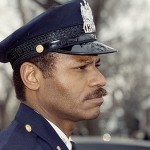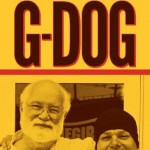One of my favorite chapters of the book, “What We Have Done,” is framed around paragraphs detailing the historic evils that Christians have committed against their neighbors followed by the response “Lord, have mercy. Christ, have mercy” after each paragraph. As I read this chapter, I thought of how valuable it would be as an occasional liturgy of confession in the local church. What if we could humble ourselves and confess the sins our community has committed? How would it change our response to those outside the Church? Wouldn’t we be forced to set aside a superiority complex? Wouldn’t we be forced to have soft hearts toward God and toward neighbor, grieved for the many ways we have fallen short of living Gospel in a broken world?
But then, after three pages of this sad and broken history, Evans makes a turn. She gives us little snapshots from history of the Church being the Church, of the graciousness and love and beauty of the kingdom shining through fallible human beings. She ends each little snapshot with “we give thanks,” another liturgical response. And so we are left with good news and hope after our confession. How marvelous if this too could be included in our corporate worship. Or if we could use it at least in our personal times of prayer.
Evans also engages communion meaningfully. She is an advocate for “the open table,” an experience of communion that is truly open to all who want to come and partake (whether or not they have been baptized, etc.). There are parts of me that resonate with this approach greatly and parts of me that wonder if an open table is actually biblical or faithful to Christian tradition.
But the gospel doesn’t need a coalition devoted to keeping the wrong people out. It needs a family of sinners, saved by grace, committed to tearing down the walls, throwing open the doors, and shouting, “Welcome! There’s bread and wine. Come eat with us and talk.” This isn’t a kingdom of the worthy; it’s a kingdom for the hungry (149).
Regardless of what we believe about an open table for communion, there is much to think about here. Do we recognize that the Gospel is such that it opens its arms to people with whom we might feel uncomfortable? Do we realize that grace comes to us precisely when we are a mess, when we need it most? Do we realise that we need it? Do we recognize God’s desire to draw all into His family, His desire that all be saved? Do we dare to warmly welcome those who are far away, to bring them near? Are we as open-hearted as God is?
In the midst of all of the wrestling and openness and grace and doubt in this beautiful book, Evans holds on tight to the Apostles and Nicene Creeds. These ancient creeds help to ground her in the midst of her struggles with the Church. They provide structure to her life of faith. They give content to her faith, lest she waver into a self-made religion. They provide her with correction and encouragement. I too find strength in these ancient creeds. On days when I wrestle with doubt, I find myself saying the Apostles Creed and the Lord’s Prayer with increased fervor.
In many ways, for all the ways this book wrestles with evangelicalism and its flaws, it’s also a love letter to evangelicalism. Evans writes of how she has to work to battle cynicism when she is rejected by the churches that raised her. She writes of how sometimes she believes she has been so quick to believe that fellow Christians would judge her that she failed to really vulnerably engage with them. She writes of how sometimes she has been quick to designate herself as the one through whom God is working while writing off fellow evangelicals. These admissions are her own humble confessions, and they intersperse the book. Her humility before her fellow Christians is central to her critique. Her admission of her own faults commends us to her.
She says, “I may not worship in an evangelical church anymore or even embrace evangelical theology, but as long as I have an investment in the church universal, I have an investment in the community that first introduced me to Jesus” (221). This is beautiful. It also challenges me. I write a lot about places where I think the Church needs to change. It’s easy to get jaded and cynical and self-righteous. It’s hard to keep your heart soft and open and humble. Evans models a gracious challenge. She shows the hard work she has done and is doing to recognize the beauty and brokenness in all expressions of the Church, including her own. She dares to admit that Jesus works mysteriously, even in places and through people that we might find surprising (people and places like ourselves, for instance).
I didn’t agree with every single thing written in this book, but I really appreciated it. I felt like Evans really gets the central qualities of what it means to be a Christian engaged humbly and faithfully with both tradition and the world as it really is. Not only is the book honest and grounded, it’s also artful literature of faith. I commend it to you.
Note: I was given a copy of this book in exchange for an honest review.
——————-
Community discussion guidelines:
Because this is a Christian blog, the things I’m talking about will obviously be topics that people feel strongly about in one direction or another. Please keep in mind that this is a place for substantive, respectful conversation. All perspectives are welcome to discuss here as long as all can treat each other with kindness and respect. Please ignore trolls, refuse to engage in personal attacks, and observe the comment policy listed on the right side of the page. Comments that violate these guidelines may be deleted. For those who clearly violate these policies repeatedly, my policy is to issue a warning which, if not regarded, may lead to blacklisting. This is not about censorship, but about creating a healthy, respectful environment for discussion.
P.S. Please also note that I am not a scientist, but a person with expertise in theology and the arts. While I am very interested in the relationship between science and faith, I do not believe I personally will be able to adequately address the many questions that inevitably come up related to science and religion. I encourage you to seek out the writings of theistic or Christian scientists to help with those discussions.
———————-












